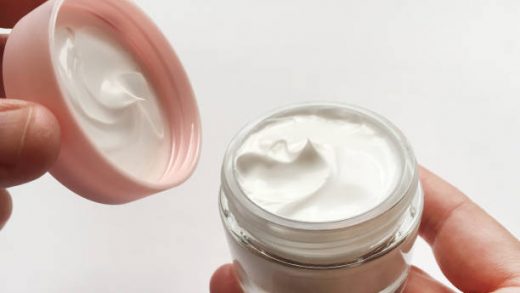Vitamin C is a common ingredient in many facial products. You might wonder, “What does vitamin C do for the skin?” Vitamin C can have numerous benefits when ingested, but you must apply it topically to get the maximum help.
You are at the right place if you’ve ever wondered, “Can vitamin C improve your skin?” We will discuss the pros and cons of vitamin C, and we hope that after reading, you will be able to see its unique benefits and add it to your skincare routine.
Vitamin C: What is it?
Vitamin C is an antioxidant that can be found in both fruits and vegetables. Vitamin C is an essential nutrient that the body uses for tissue growth and repair in all parts of the body. Vitamin C is added to skin oils and serums in skin care products. Vitamin C is applied topically to protect the skin from environmental stressors.
Vitamin C Types
Vitamin C’s efficacy, when applied topically, depends on the type. Vitamin C is available in many forms. The skin cannot convert all vitamin C derivatives into active vitamin C. To determine the best vitamin C for you, it is essential to consider the quality and the short- and long-term effects on your skin.
L-ascorbic Acid
This synthetic version of vitamin C is potent and refined. The antioxidants in L-ascorbic acids benefit the skin by neutralizing environmental stressors and reducing the signs of aging. L-ascorbic can help the skin but only penetrates when formulated at low pH levels. This negates any charged molecules. Pure vitamin C can degrade if it is not prepared correctly. L-ascorbic can remain on the skin for up to 72 hours. Vitamin C can irritate the skin (susceptible skin) because it must be kept at a low pH to maintain stability.
Ascorbyl Palmitate
This synthetic vitamin C is fat-soluble instead of L-ascorbic, which is water-soluble. It is a cream-like substance that offers antioxidant protection for the skin and rejuvenation. The skin will also be brightened by its use. When applied to the skin, it is stable. It turns into vitamin C. Studies have shown that, despite its antioxidant qualities, it may also intensify the skin damage caused by UV radiation (1).
Tetrahexyldecyl ascorbate
It is an oil-based vitamin C. Because it is so stable, we use it to make our Concentrated Boosting Elixirs. It is a powerful antioxidant with excellent skin-brightening properties. The pH of the product is also safe to use. It’s powerful but shouldn’t be applied more than 1% to the skin.
Vitamin C and bioflavonoids
Compounds called bioflavonoids can be found in vegetables and fruits. Bioflavonoids enhance the effects of other antioxidants, such as vitamin C.
What is the benefit of Vitamin C serum for the skin?
You can use a Vitamin C serum to improve your skin. We always recommend that you look at the type, source, and way you use vitamin C serum to determine if it is best for your short-term and long-term needs.
Our collection of serums features high-quality vitamin C serums. These include our energizing Citrus Stem Cell Serum; our rejuvenating Wild Fruit Serum; and Brighten, from our Concentrated Boosting Boosting Elixir Trio. These serums and elixirs are hydrating, which helps deliver vitamin C to the deeper layers of the skin. This is more effective than using a facial oil or moisturizer. Check out our guide on making a vitamin-C serum at home if you do not own a serum.
Vitamin C Benefits for Your Skin
Do you want to know what Vitamin C can do for your skin? You may have tried several vitamin C products, but you must understand how they affect your skin. We’ve listed some of the most essential vitamin C skin benefits below.
Hydrates skin
Vitamin C serums will hydrate your skin and give you a plump look. Vitamin C serums, with their high aqueous contents, will allow your skin to retain more water. This will make it look vibrant, youthful, and bouncy. Vitamin C is crucial in many anti-aging products, including our Collection for Dry & Mature skin. This is because vitamin C helps to retain water.
Redness is reduced by using this product.
Vitamin C also helps unclog your pores, leaving you with smoother skin. It can soothe temporary redness caused by skin picking or congested pores.
Vitamin C plumps up the skin.
Vitamin C replenishes the water in your skin, giving you a youthful, supple appearance.
Protection
Dry skin is more susceptible to sun damage because it lacks hydration. Vitamin C is a great way to hydrate your skin and boost its natural defenses. This is especially important when you’re outdoors or in the sun. Remember to apply your sunscreen the following day as an additional layer of protection!
Brightens skin
Vitamin C gives the skin a youthful glow, reducing the appearance of dark spots. Vitamin C is known to inhibit excess melanin, the pigment that causes skin coloration.
Dark spots fade away.
Dark spots are caused by excess melanin in some regions of the skin. Vitamin C inhibits melanin production, which results in a fading of dark spots and an even, illuminated complexion.
Most skin types can safely use it.
Vitamin C is one of the few products used topically that does not cause skin reactions. It is safe to use for a long time on most skin types. Find the best one for your skin type.



